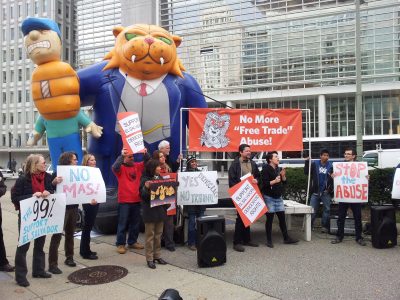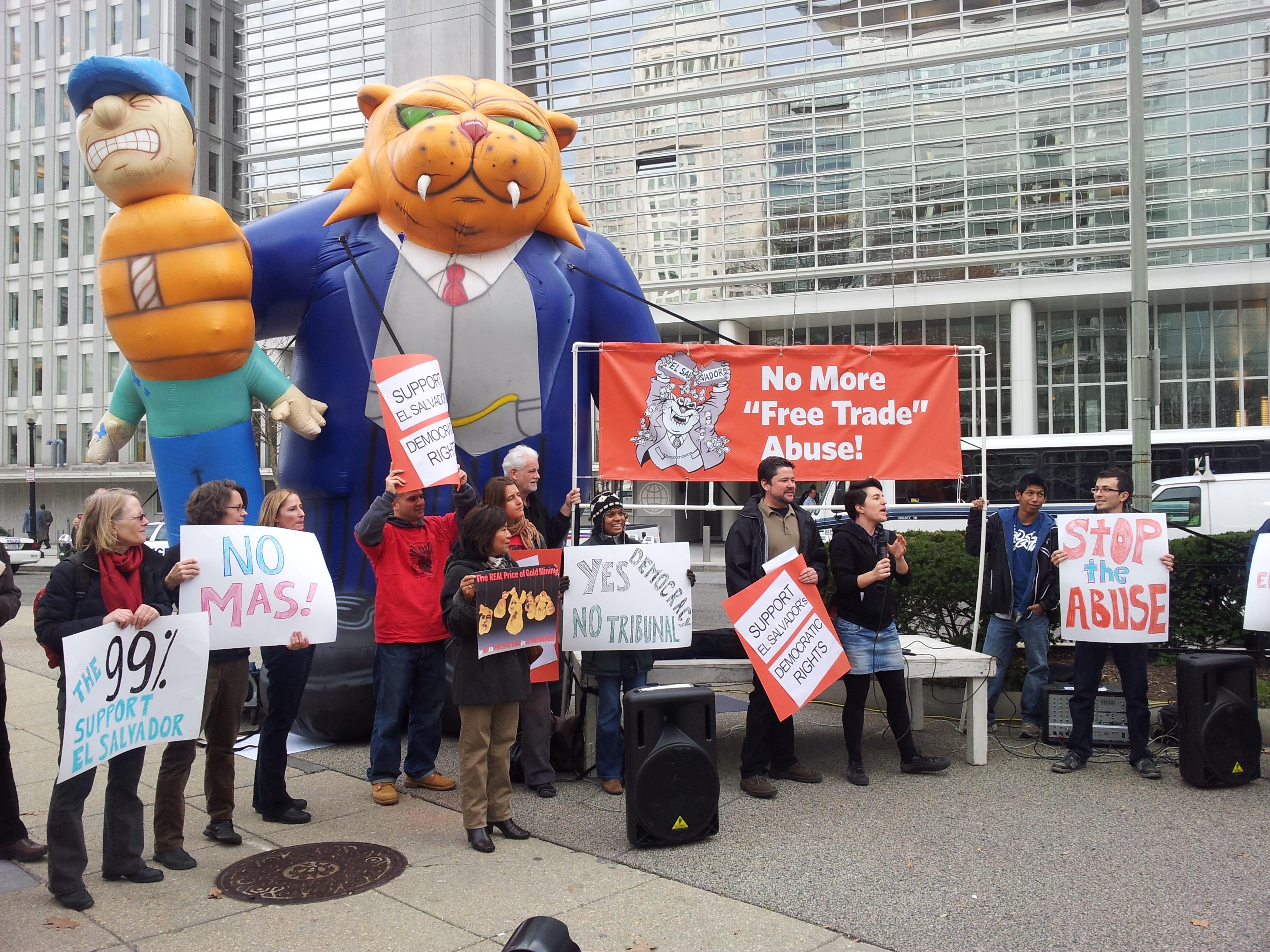 Today I will join leaders from the labor, environmental, faith, and human rights communities to protest in front of the World Bank.
Today I will join leaders from the labor, environmental, faith, and human rights communities to protest in front of the World Bank.
Why?
We’ll be there to stand up for the democratic rights of people everywhere in the face of ever-expanding corporate rule.
There’s a set of people from the 1 percent who don’t think we should be there. Twenty-one years ago, those people got together just two blocks north of the World Bank, in the K Street corporate lobbyist corridor, and crafted a set of corporate rights that they then inserted in the North American Free Trade Agreement (NAFTA).
These so-called “investor protections,” now in dozens of U.S. trade and investment treaties, are some of the most extreme examples of excessive corporate powers you could find. They grant corporations the right to sue governments in international tribunals over actions that reduce the value of their investment. This can even include environmental, health, and other measures to protect the public developed through a democratic process.
These rules empowered an obscure tribunal in the World Bank to rule on these “investor-state” cases. Three people who no one elected can decide the fate of millions.
One of these tribunals will soon decide the fate of El Salvador. A gold mining company, Pacific Rim, is suing for compensation because that government has not approved a permit for a gold mining project. The majority of Salvadorans oppose this project because of legitimate concerns that it could poison a river that’s the country’s biggest source of drinking water. Pacific Rim is demanding in excess of $77 million.
The story gets even more outrageous. Pacific Rim is suing under the U.S. trade agreement with Central America and the Dominican Republic, called DR-CAFTA. But since Pacific Rim is based in Canada, and Canada isn’t part of the DR-CAFTA pact, they created a subsidiary in Nevada in order to file this lawsuit.
If Pacific Rim gets away with this, it will give a green light to global corporations everywhere to pull this same trick. U.S. corporations could set up subsidiaries in other countries that are trade partners with the United States, in order to sue the U.S. government.
During today’s protest, I’ll be part of a group of us that will walk across the street and deliver an open letter to this tribunal (called the International Center for the Settlement of Investment Disputes) and to the president of the World Bank, who chairs the tribunal’s administrative council.
The letter, signed by over 240 labor unions and other international organizations representing more than 180 million people, demands that El Salvador’s domestic governance processes and national sovereignty be respected and that the Pacific Rim case be thrown out. This is the 99 percent standing up to the 1 percent. We’re saying: You must stop trampling on democracy.
John Cavanagh is Director of the Washington-based Institute for Policy Studies. In August, he published in The Nation , with Robin Broad the article Like Water for Gold in El Salvador.
